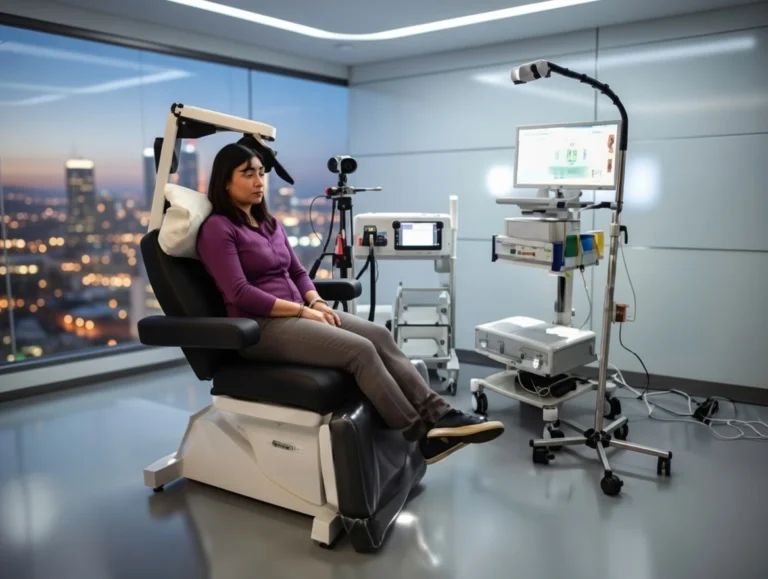
Cofactor Genomics, Inc., a clinical-stage company focused on advancing precision medicine through RNA decoding, has announced the publication of results from its PREDAPT clinical trial (NCT04510129) in head and neck squamous cell carcinoma (HNSCC). The study highlights the clinical validity and utility of OncoPrism-HNSCC, a Medicare-reimbursed diagnostic test designed to predict patient response to immune checkpoint inhibitors (ICI).
The publication underscores OncoPrism-HNSCC’s ability to identify which HNSCC patients are most likely to benefit from ICI treatments, potentially improving treatment outcomes and offering more targeted therapeutic options for patients. By leveraging novel RNA modeling technology, OncoPrism-HNSCC provides valuable insights into the tumor microenvironment, enabling clinicians to make more informed decisions about immunotherapy for their patients.
This significant milestone further strengthens Cofactor Genomics’ position as a leader in RNA-based precision medicine, helping bridge the gap between complex molecular data and actionable clinical decisions.
Cofactor Genomics, Inc. has published promising results from its multicenter PREDAPT clinical trial (NCT04510129) in Head and Neck Squamous Cell Carcinoma (HNSCC), highlighting the superior performance of its OncoPrism-HNSCC test in predicting patient response to immune checkpoint inhibitors (ICI). The study reports that OncoPrism-HNSCC offers a 300% improvement in specificity over PD-L1 CPS and a 400% improvement in sensitivity compared to Tumor Mutational Burden (TMB), two commonly used biomarkers. While PD-L1 and TMB have limitations and have been associated with over-treatment and poorer outcomes in HNSCC patients, OncoPrism-HNSCC provides a more accurate approach to predicting ICI benefit.
“The OncoPrism assay offers a valuable tool for clinicians to better determine the most effective treatment options for patients with recurrent or metastatic head and neck cancer,” said Dr. Douglas Adkins, MD, head and neck oncologist and Professor of Medicine at Washington University School of Medicine. “This technology bridges the precision medicine gap by giving clinicians the data they need to make more informed, personalized treatment decisions.”
The results were published in the Journal for ImmunoTherapy of Cancer in the study titled, “Multicenter Validation of an RNA-Based Assay to Predict Anti-PD-1 Disease Control in Patients with Recurrent or Metastatic Head and Neck Squamous Cell Carcinoma: The PREDAPT Study.” OncoPrism-HNSCC was shown to accurately predict disease control and progression-free survival in patients from 17 healthcare systems who were treated with immune checkpoint inhibitors, either as a single agent or in combination with chemotherapy.
In addition to showing promise for improved patient outcomes, the study also outlines the health economic benefits of OncoPrism-HNSCC, which could ensure that more patients receive personalized treatments tailored to their unique needs, potentially reducing unnecessary treatments and improving overall care.
“This study illustrates the transformative potential of new molecular technologies in precision medicine,” said Dr. Eric Duncavage, MD, Medical Director at Cofactor Genomics. “Cofactor’s Health Expression Models (HEMs) represent a new class of diagnostic technologies that combine RNA expression data with machine learning to measure the body’s immune response to cancer. These models provide more accurate predictions of immunotherapy responses than existing biomarkers, giving clinicians better tools to personalize cancer treatment.”
About Cofactor Genomics
Cofactor Genomics is a clinical-stage diagnostics company that leverages RNA decoding to advance precision medicine and tackle key challenges in healthcare. Through its PRISM database and patented Health Expression Models (HEMs), Cofactor provides a unique, high-dimensional approach to understanding disease biology and therapy responses. HEMs use RNA expression paired with machine learning to generate more accurate, actionable insights compared to traditional gene mutation panel tests.
Cofactor’s innovative RNA modeling work has been published in The Journal of ImmunoTherapy of Cancer, The Journal of Molecular Diagnostics, and recognized by Nature Scientific Reports as breakthrough research in cancer. Cofactor is partnered with 38 healthcare systems, covering 20% of the U.S. healthcare market, and is committed to transforming cancer diagnostics and treatment through RNA-based precision medicine.




